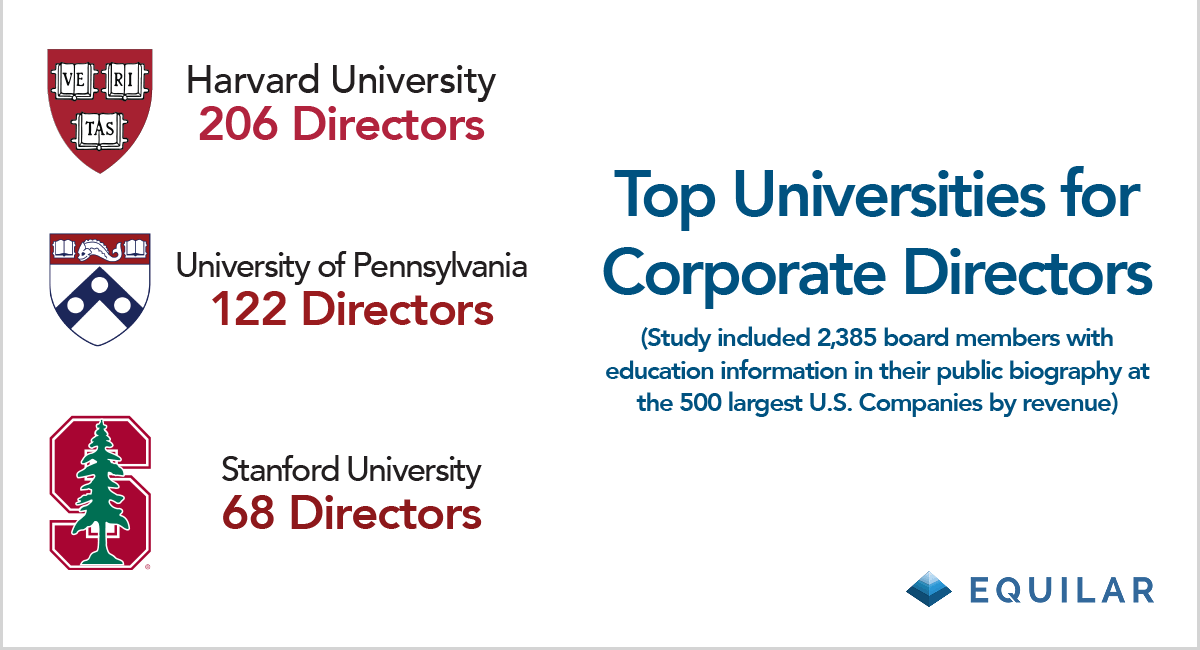Dan Marcec is Director of Content at Equilar, Inc. This post is based on an Equilar publication by Mr. Marcec which was originally published in the Equilar Knowledge Center.
With the college football season recently coming to a close, there’s no question who’s Number 1 on the field. When it comes to the top schools for turning out board members at public companies, there are also a couple of clear winners. A recent Equilar study using data from its BoardEdge platform uncovered the results.
Harvard took the top spot among universities attended by corporate board members at the largest companies by revenue. Overall, 206 individuals currently sitting on an Equilar 500 board earned at least one degree there. That was nearly three times the amount who attended Stanford, which came in third place with 68 board members. In second place, the University of Pennsylvania—no doubt bolstered by a number of Wharton MBAs—stood well above all other schools besides Harvard, with 122 alumni serving as sitting directors at the top U.S. companies.

The study included 2,385 board members at Equilar 500 companies with disclosed education details in their director biographies. Overall, those directors attended 741 schools, and nearly half of these institutions (362) boasted more than one director as alumni. A little less than 10% of the schools on the list (69 total) had more than 10 alumni sitting on boards. Directors with multiple degrees from different schools were counted twice, but if a director had multiple degrees from the same school, he or she was counted only once.
Information about a director’s educational experience can be a useful input in various business cases. For example, a board of directors searching for a new member may find a candidate (or a reference for a candidate) through a shared undergraduate or professional degree—whether they know each other directly from school or simply have that shared experience. As an example, several Equilar Diversity Network partners—including Stanford Women on Boards and Wellesley Business Leadership Council—help alumni position themselves to be board candidates.
Similarly, a connection through a mutual (or rival) collegiate or professional degree experience can create a warm introduction and a conversation starter where one did not exist before. A shared university experience can be a critical point of contact when trying to win business from C-suite leaders and boards of directors. An icebreaker about who you know, what professors you had or where you liked to eat lunch (or drink a beer) can be the difference between securing a meeting or being ignored.
Winning in business is all about having an extensive professional network, and comprehensive data across the corporate universe can help companies strategize effectively to make the most of those networks.
* * *
A full list of universities from the study is available for download by filling out the request form available here.
 Print
Print